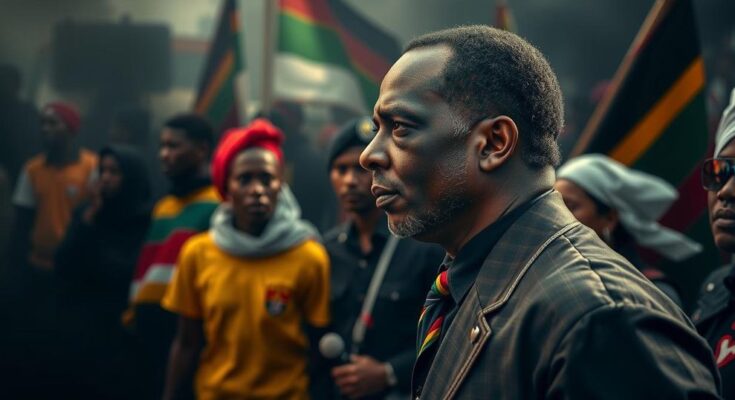Kizza Besigye, a Ugandan opposition leader, has reportedly been abducted during a book launch in Kenya and detained in a military facility in Uganda on charges of illegal firearm possession. His wife, Winnie Byanyima, demands his release, asserting that the charges are unfounded amid claims of political suppression in the region. The Ugandan government denies involvement, framing the incident within the context of international cooperation in law enforcement.
Kizza Besigye, a seasoned opposition leader from Uganda, has drawn significant attention following claims of his abduction during a recent book launch in Kenya. Reports from his wife, Winnie Byanyima, suggest that he was forcefully taken and is currently imprisoned in Kampala, Uganda. Within the confines of military detention, Besigye has been charged with the unlawful possession of firearms, a matter fervently contested by his legal representatives and family. They advocate for his immediate release, citing serious concerns regarding the broader implications of political detentions in the East African region. Winnie Byanyima, who also serves as the Executive Director of UNAIDS, has publicly criticized these accusations, calling for her husband’s swift release. Despite these calls, the Ugandan government has refuted claims of any involvement in his alleged abduction. Chris Baryomunsi, the Minister for Information in Uganda, stated that any apprehensions made outside national jurisdiction are conducted with the cooperation of the host nation, asserting the legitimacy of their actions. During a recent court appearance, Kizza Besigye appeared to be in poor health, raising alarm among supporters and critics alike. His lawyer, Erias Lukwago, has denounced the charges against him as “incurably defective,” further emphasizing the contentious nature of this case. This incident highlights the escalating tensions regarding political imprisonment in the region and raises pressing questions about the state of democracy and accountability in Uganda.
The case of Kizza Besigye emerges against a backdrop of longstanding political strife in Uganda, where dissent against President Yoweri Museveni’s government has often faced harsh suppression. Besigye, a four-time presidential contender, has been a vocal critic of the ruling regime, having endured multiple arrests and detentions over the years. The current allegations of his kidnapping and subsequent charges of firearm possession are viewed by many as politically motivated attempts to silence opposition voices. The incident further illuminates the challenging political landscape in East Africa, characterized by increasing authoritarianism and questionable law enforcement practices. This situation draws attention to the need for stronger protections of human rights and political freedoms in the region.
In summary, Kizza Besigye’s detention under controversial circumstances in Kenya raises serious concerns regarding political freedoms in Uganda and the broader East African region. His wife and legal team contest the unfavorable charges against him, calling attention to the political motives behind such actions. As international scrutiny grows over the Ugandan government’s practices, the implications of this incident extend beyond an individual case, highlighting systemic issues within the region’s political framework.
Original Source: www.devdiscourse.com




